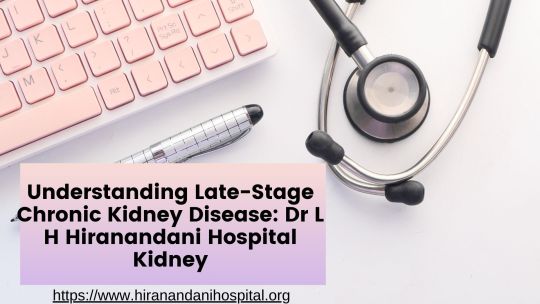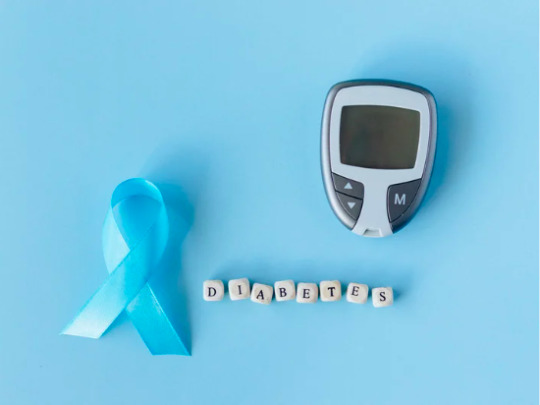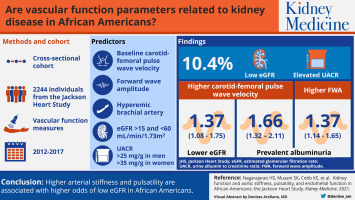#CKD Management
Text
Compassionate Care for Chronic Kidney Disease: A Nursing Perspective
Chronic Kidney Disease (CKD) is a progressive loss of kidney function over time. Managing CKD is not just about slowing the progression of the disease but also about enhancing the quality of life for those affected. Nurses play a crucial role in this process, providing care that is as compassionate as it is competent. This blog post will explore the nursing interventions and desired outcomes that…

View On WordPress
#AChronic Kidney Disease#Blood Pressure Control#CKD Complications#CKD Management#CKD Progression#Dialysis Support#End-Stage Renal Disease#Fluid Management#Kidney Disease Education#Kidney Function Monitoring#medication adherence#Nurse#nurses#Nursing#Nursing Care Plan#Nursing Interventions#Pain Management in CKD#palliative care#patient education#psychosocial support#Quality of Life with CKD
0 notes
Text
The Benefits of a Low-Protein Diet for Kidney Disease: An In-Depth Analysis
Chronic kidney disease (CKD) is a global health issue that affects an estimated 10% of the world’s population, with numbers continuing to rise due to the prevalence of hypertension, diabetes, and aging populations. The progression of CKD is typically slow but leads to severe consequences, including end-stage renal disease (ESRD), where dialysis or kidney transplant becomes necessary. Nutrition…
#chronic kidney disease#CKD treatment#diet management#kidney disease#kidney health#low-protein diet#nutrition tips
0 notes
Text

Early detection of CKD, preferably in its earlier stages, is paramount for effective management and improved outcomes. Routine screenings for high-risk individuals, including those with diabetes and hypertension, can aid in identifying kidney dysfunction before it progresses to late stages. Education and awareness campaigns about CKD risk factors and symptoms are crucial for encouraging early medical intervention as Per Hiranandani Hospital Kidney.
#hiranandani hospital reviews#hiranandani powai hospital#hiranandani hospital kidney#hiranandani hospital powai#hiranandani hospital kidney care#hiranandani hospital powai news#hiranandani hospital powai covid#hiranandani hospital kidney transplant#hiranandani hospital kidney tranplant#hiranandani hospital#Early detection of CKD#preferably in its earlier stages#is paramount for effective management and improved outcomes. Routine screenings for high-risk individuals#including those with diabetes and hypertension
0 notes
Text
H.R.H. Prince Daniel's opening speech at the European Renal Association's congress
Ladies and gentlemen,
It is a great honour for me to welcome you to Sweden, to Stockholm, and to the 61st ERA Congress.
From the early days of dialysis to the groundbreaking innovations in transplantation, you have continuously pushed the boundaries of what is possible.
However, as we celebrate your achievements, we must also recognise the ongoing challenges we face. The prevalence of chronic kidney disease (CKD) continues to rise globally, affecting millions of people and adding to the enormous burden on healthcare systems.
In developing countries, the situation is particularly critical, with many patients lacking access to life-saving treatments. This inequity underscores the urgent need for continued efforts in research, education, and policy advocacy.
The theme of this year's congress, "Innovate, Collaborate, Transform", reflects a collective mission to not only advance scientific knowledge, but also to implement practical solutions that improve patient outcomes.
Over the next few days, we will hear from leading experts who will share the latest research findings, clinical practices, and technological innovations.
A key focus area this year is the role of personalised medicine in kidney care. By tailoring treatments to the individual needs of patients, we can increase the efficacy and reduce side effects, ultimately leading to better outcomes.
This approach, combined with progress in AI and data analytics, holds the promise of revolutionising how we diagnose, treat, and manage kidney diseases.
We must also address the environmental factors impacting kidney health.
Climate change, pollution, and water scarcity are emerging as significant contributors to the global burden of kidney disease. And of course, a healthy lifestyle is crucial!
Ladies and gentlemen,
This year marks 60 years since the first kidney transplantation took place in Sweden, at a hospital called Serafimerlasarettet here in Stockholm. The surgery was performed by Professor Curt Franksson, who grew up in a small municipality two hours north of Stockholm, Ockelbo.
And so did I, but 50 years later.
Our shared history, Professor Franksson’s and mine, does not end there.
Forty-five years after Franksson's first transplantation at Serafimerlasarettet, I found myself at the same hospital, on dialysis, waiting for a kidney transplant.
Today, 15 years later, I am standing here, healthy, and happy with my father's kidney.
The gratitude I feel towards those of you who dedicate your lives to improving opportunities for us patients is indescribable.
Thank you.
Speech held by H.R.H. Prince Daniel at Stockholmsmässan, Älvsjö, Stockholm, on May 23, 2024.
7 notes
·
View notes
Text
Sigh.
I had to explain why Afterburn hasn't been finished yet, so I'll repeat part of how I responded to this really awesome (I mean that...I love all my fans 😭) fan, but here with harsher lang because I have hate for this fucking bitch who hasn't even given me a "Thank you" for anything and has just fucking ghosted me after she got out the last time:
1. The Junkie Neighbor and The Cat. Her fucking going in and out of rehab fucked up my creative process because I had to take care of the cat and her apartment every night for long stretches at a time. I've posted pics of kitty, and will post the last one I think I'll ever take with him (😭😭😭😭😭 I raised him from a kitten) under the cut. This bitch was supposed to be my friend, but she has fucking...problems with herself and her personality disorder. I have zero idea why she hasn't responded and I don't even know where the fuck she is. So if she's reading (I think she knows of this blog), the YOU'RE FUCKING WELCOME, BITCH. And what you're doing right now is fucked up.
2. My 17yo dog is on his last legs. I've written how he's had seizures, but I haven't written how his barking after a seizure can get me a noise complaint from my shitty building manager, so that shit makes me anxious. I hand feed him, I help him get water the same way Peter Griffin helped Old Brian in that cutaway:
youtube
I wrap my boy's pills in gummies, not PB and beef 💀
LOL Except I don't have to push his tongue into the water like that. And I have to do it every...day...when he's awake. This is a disruption in my creative process too, because I REALLY wanted to pass out around 4PM today to be able to map and write all night but couldn't because he just would not settle. Dogs with dementia are like people with dementia, but less propensity towards violence when you try to help them (at least my old dogs are...they're small dogs and don't have any teeth left).
I didn't even mention my own health problems, in my explanation about how Afterburn's creation got messed. I've got Stage 4 CKD (kidney disease) and only 1 working kidney (lost the other to cancer in 2016). My kidney issues began when I was in France in 1986 and they failed on me because I ended up having HSP (and the strange nature of HSP and the possibility of certain vaccinations bringing on HSP in a few people has left me practically defenseless against COVID). Another HSP flare up would literally kill me (because there would likely be kidney involvement, and since I only have one left...the first time was Hell on Earth, I was pissing and shitting blood — stool is black when that happens...and my urine was bright red — and my parents thought I was gonna die), but I've been masking since January 2020 and have no intention of unmasking.
Having one kidney leaves me utterly exhausted to do any simple thing, so most of my energy goes to taking care of my boy/my girls. I'm on BP meds, PTSD meds, and pain meds (for chronic pain; I suffered through childhood arthritis that just ended up continuing into my adulthood), and when the Big Pharma pain meds don't work, I use cannabis. I don't really talk about or complain about it as explicitly as I am now bc it's tiring to explain over and over again why I'm a useless sack of 💩. I worked a "normal job" until I couldn't anymore; I am physically disabled.
Besides my seniors, the one other bright spot in my life is the baby. I have an Ask that wants more pics of her (I got it shortly after I posted her "Lookit me, I'm Jenna Ortega 🤓🤓🤓" glasses pic LOL), and I was going to do a whole post on her but I'll just slip a pic or two under the cut with the others.
I'll stop yapping and do that. Dogs under the cut.
This is my life now:
And before anyone gets on me about "HE NEEDS WET FOOD!", he gets wet food, but he likes his dry food. I try to spray it with water for a bit of moisture, but if I spray it too much, he won't eat it.


The orange on his face is pasta sauce (he likes licking cans...and he gets what he wants).🫠 It's sometimes hard to clean. He is always wearing pajamas (he has 6 different ones) and his elephant hoodie (he's got 3 of the same, so I can switch them out). Weird story but...one time several years ago I got him a simple elephant costume (the hood had the trunk, the body was thin jersey material but it also had 4 plush legs and a tail 🤣) and he LOVED it so much that he basically wore it out. He would get sad when it wasn't on him and excited when I would hold it up after it dried/after washing. He's fkn weird, okay? So I looked online to see if I could find another one but instead found the elephant hoodie. It doesn't have legs or a tail, but it has the trunk and it's soft and he likes it as well. Having him clothed really helps when I need to hoist him up onto the couch or help him drink. He doesn't have loose skin and even if he did, I wouldn't want to grab onto skin. It's my job to make him as comfortable as possible, not to hurt him.
Now this little (17yo as well) old lady here:

I inherited her from a nasty (racist) old bat who died right before the pandemic. Bat had CKD as well, but she went into kidney failure at some point after she wouldn't listen to me about fixing her diet (she had uncontrolled diabetes too...her blood sugar was over 400 at one point when I was visiting her at her physical rehab with the dog 😨).
She is blind, but even before she went blind, she was freaky about being handled when she didn't used to be. She can't walk outside because she gets disoriented, so she uses the pee pad set up I have for the seniors. I do love her like my own, as she is my own now (my last screenplay actually features a dog just like her). She was part of the same dog group as my boy in the rescue that I worked at...my other boy from the same rescue passed in 2021 and devastated me. His passing led me to find this little baby here:

She only wears jammies when it's cold in here.
I had never gotten a puppy before, but I was in a really dark place when my other boy died. I was seriously contemplating taking myself out too (God knows I have enough drugs here to do so). But I channeled my grief into cleaning up this place and finding another pomchi/chion (we were never sure what he was, but I think he might've been part Papillon because of his ears/fur/tail)...and I found one, albeit chocolate instead of white. I've had her since she was 8 weeks and a day, and thank the gods that she's the sweetest and pretty low maintenance. I raised her on Harry Potter 1 and 2 and Victoria Stilwell videos, and she somehow picked up what good behavior is vs. bad behavior from the Stilwell videos 😶. She used to howl at Harry Potter during the Neville scenes and the Quidditch matches (and the Mandrakes scene). I didn't want to raise her on Potter, but I chose it because it was kid's thing and as soon as I put it on her eyes were glued to the TV. She also likes Stranger Things and is okay with Wednesday. She's spoiled af, so she's got toys from all of those (she ate off the legs of her fave Harry Potter plush, adores her Eleven squeaky toy, and loves her Enid plush...yes, the Kid Robot one that came in a set with Wednesday and Bianca, the latter of which I kept for myself because it's fkn Bianca).
Anyway. That's what's up with me. I have no one here to help me anymore, so it's just me and the dogs. If I fkn die, no one will find my body for days unless one of the dogs starts barking, and the baby doesn't normally bark (she wheeks like a guinea pig). I will likely ask one of the ficwives if they would be willing to at least know my notes for Afterburn in case something does happen to me. They know the general trajectory of the story for Afterburn 2, so they already know what happens with Wenovan, but they don't know the details of the whole (the Goodmen, Joseph Crackstone & Goody, OG Nightshades (Morticia, Gomez, Larissa, Chancellor, Vincent, Mina (the Twins' mother), Francoise, Osamu (Yoko's father), the Petropoluses, and Grandmama Addams (the oldest living "local" Nightshade)) story. I've yet to decide on a few other Elder Nightshades, but I've got ideas. The Nightshades and Wednesday's power as one are a BIG focus of Afterburn 2, so maybe now you get my irritance at the fkn show deleting 2/3 of them.
My boy's sleeping now so I guess I ought to sleep too, otherwise he'll wake up when I'm about to sleep and THAT fucks me up even more.
ETA: Forgot the pic of the cat.

My buddy, Prince (the name he was given when he was born, so ✨I✨ kept it, but his weirdo mom named him "Tennessee Tuxedo"). Wow, Tennessee... I just now realized that.... To me he will always be Prince Ovaltine of Meowcatsia, a cat who adored playing tag with me. 💔💔💔💔💔
#personal#rl shit#satisfying afterburn#my writing#my work#my babies#tor#tor talks#wednesday#wednesday addams#sheriff galpin#black bubblegum#wenovan#i swear that i'm not GRRMing this story lol#dogs#old dogs#dog pics#dog photos#long post
2 notes
·
View notes
Text
Scientists Develop Novel Machine Learning Models to Predict Comorbidities at an Early Stage of Type 2 Diabetes Mellitus

Type 2 Diabetes Mellitus (T2DM), a recognized risk factor for heart failure (HF) and cardiovascular illnesses such as chronic kidney disease (CKD), was diagnosed in an estimated 537 million people worldwide.
In order to manage CKD and HF in individuals with early stages of T2DM, a complete treatment strategy is preferred. Early and better detection of these disorders can improve results. But recent research indicates that T2DM patients’ CKD and HF are not properly recognized, which results in increased rates of disease progression and a worse prognosis.
Researchers at AstraZeneca and Ono Pharmaceuticals created a model that could predict the likelihood that individuals with T2DM who had no prior history of CKD would develop CKD/HF. This study is a major step toward early and better diagnosis of CKD and HF in patients with T2DM.
Continue Reading
#bioinformatics#type 2 diabetes#chronic kidney disease#heart failure#machinelearning#health#100daysofcode#scicomm#medcomm#stem#science news
43 notes
·
View notes
Text
Topics for Nephrology
-Review renal anatomy and physiology
-AKI
-Stages of CKD and management at each stage
-What renal diseases should primary care physicians be capable of managing? When to refer to nephrology?
-Most common renal diseases and their management
-Renal cell carcinoma
-Renal osteodystrophy
-PTH at different levels of CKD
2 notes
·
View notes
Text

Understanding African American and non-African American eGFR laboratory results
Understanding why eGFR laboratory reports include African American and non-African American results
Glomerular filtration rate (GFR) is the best way to measure how well your kidneys are working, but this test is complicated and cannot be easily done in a doctor’s office. To get around this, laboratories use mathematical equations to estimate the glomerular filtration rate instead of measuring it. This is why laboratories report estimated GFR or eGFR.
Two commonly used estimating equations for eGFR are the CKD MDRD (Modification of Diet in Renal Disease) and the CKD EPI (Chronic Kidney Disease Epidemiology Collaboration) equations. Using these math equations, eGFR is calculated from the amount of creatinine in the blood.
Creatinine is a waste product that comes from the normal wear and tear on your body’s muscles and also from the foods you eat. Everyone has creatinine in their bloodstream. However, creatinine levels can differ between people. This reason for this difference may not only be related to kidney disease – it may be affected by several other factors, such as age, sex, and body weight.
Race was originally included in eGFR calculations because clinical trials demonstrated that people who self-identify as Black/African American can have, on average, higher levels of creatinine in their blood. It was thought the reason why was due to differences in muscle mass, diet, and the way the kidneys eliminate creatinine. Since a patient’s race is not always used when laboratory tests are ordered, laboratories used different eGFR calculations for African American and non-African American and included both numbers in their lab results.
The use of race in calculating eGFR has been a subject of debate. Race is not a biological concept, but a social construct. Using race as a factor for calculating eGFR does not account for the diversity within communities of color. Also, people who self-identify as multiracial might not want to be put in a single racial bucket.
What is the NKF doing to address concerns about using race in measuring eGFR?
In 2020, the National Kidney Foundation (NKF) and the American Society of Nephrology (ASN) formed a joint task force to review the use of race in eGFR calculations. On September 23, 2021, the Task Force announced a new race-free calculation for estimating eGFR. The National Kidney Foundation is working with the nation’s laboratories to get this new calculation into use as quickly as possible. The NKF is also creating materials to show how this new equation may impact patient care.
How is eGFR used?
Estimated GFR is one of the key tests for diagnosing kidney disease. The earlier kidney disease is detected, the better the chance of managing it or keeping your condition from getting worse. Your eGFR informs healthcare professionals about your kidney function and helps them to recommend the best treatments for you. For instance, eGFR results are used in the following ways:
Confirming that kidney function is normal for a potential living kidney donor
Making sure the right dose of medicine is used
Enrollment in clinical trials that use kidney function as an inclusion or exclusion criterion
Making sure the right type of imaging tests and dyes are used
When to refer someone to a nephrologist or kidney doctor
If and when to plan for dialysis
When to start an evaluation for a kidney transplant
Although the NKF alone cannot solve all inequalities, the NKF is working to help identify, confront and reverse them. NKF advocates for making affordable healthcare more available and making sure that communities of color are not left behind. NKF’s CARES helpline is available to all people with kidney disease. NKF’s educational offerings include the impact of kidney disease on diverse communities, and the reasons why communities of color have been disproportionately affected by COVID-19. NKF is committed to continuing its work to address inequalities in kidney health.

#gfr#african american#kemetic dreams#african#africans#lab test#laboratory#health#clincial#clinical laboratory test market
7 notes
·
View notes
Text
An Advocate for Kidney Patients
Elizabeth Oldham learned she had Chronic Kidney Disease (CKD) in 2018. Since then, she is learning everything she can in order to manage the disease. She knew she was at risk because of a family history of chronic disease, and her higher likelihood of developing CKD as a Black woman. However, Elizabeth lives a vegan lifestyle and is proactive in her healthcare journey, which she is hopeful will keep her from developing end-stage renal disease, and off dialysis, as long as possible.

Elizabeth attended a community health fair on behalf of Kidney Foundation of Ohio.
While attending an educational class at a dialysis unit, Elizabeth received a pamphlet from Kidney Foundation of Ohio. She was inspired to get more involved with our educational offerings and began attending learning series sessions and World Kidney Day events. Then, in 2022, she took a step further and became a volunteer, assisting in passing out resources at community health fairs.
Elizabeth feels blessed to have more resources at her disposable than a lot of individuals with kidney disease, so she wants to give back to the kidney community. Aside from volunteering with KFO, her work has included helping to get the Living Donor Protection Act passed, writing articles for local news outlets, and serving on committees for national kidney organizations.

Elizabeth spoke in a video for Cleveland MOTTEP promoting COVID-19 vaccinations.
Since a very young age, Elizabeth and her family have been committed to community service, and education. Her passion for education on early disease detection is admirable, and we are thankful to have Elizabeth as a kidney patient advocate and volunteer. In her free time she is an avid reader who loves to collect old novels, go vintage shopping, and watch old classic films.
Interested in getting more involved as a volunteer for Kidney Foundation of Ohio? Contact Annette at [email protected] or (216) 771-2700, or visit our website to learn what opportunities are available.
3 notes
·
View notes
Text
Using Remote Patient Monitoring Software for Dialysis Patients
Remote Patient Monitoring (RPM) software can be a transformative tool for managing dialysis patients, offering real-time tracking of critical health data, and improving patient outcomes. Dialysis patients, who often face chronic kidney disease (CKD) or end-stage renal disease (ESRD), require frequent monitoring of vital parameters such as blood pressure, fluid levels, heart rate, and electrolyte balance. RPM software facilitates continuous, remote monitoring, allowing healthcare providers to intervene quickly when necessary.
Read for more info at:
https://www.finddialysiscenters.com/article/rpm-software-dialysis
0 notes
Text
Effective Kidney Failure Treatment Without Dialysis: Alternatives to Dialysis for Better Health

What are Kidney Diseases and Complications?
Kidney disorders refer to kidney conditions that impair kidney work, affecting the body’s ability to filter waste and manage liquid balance. Chronic kidney disease (CKD) is a common type that progresses slowly over time, often leading to more severe conditions like kidney failure if left untreated. Treatment for kidney failure may require dialysis or a kidney transplant, but it will be very painful; thus, many are seeking kidney failure treatment without dialysis as an alternative option.
High creatinine levels are a significant indicator of kidney dysfunction. Creatinine is a waste product produced by muscles, and the kidneys normally filter it out. High creatinine treatment is crucial in managing kidney diseases, as elevated levels may indicate the need for prompt medical intervention. Chronic kidney disease treatment typically involves medications, lifestyle changes, and dietary restrictions to slow disease progression.
Complications of kidney disease range from fluid retention to cardiovascular problems. Kidney disease can also lead to anaemia, bone disease, and neurological changes. Therefore, finding an effective cure for chronic kidney disorder is important for improving patient outcomes and quality of life.
How Do Kidney Patients Feel the Symptoms of Kidney Disease?
Symptoms of kidney disease are often subtle at first but become more pronounced as the condition worsens. Many people may not realise they have kidney disease until it has reached a more advanced stage. Early symptoms can include fatigue, swelling in the legs and ankles, and difficulty concentrating.
As the condition progresses, patients may experience more severe symptoms, such as nausea, loss of appetite, and changes in urination patterns, such as increased frequency or blood in the urine. These signs often prompt individuals to seek kidney problem medication to manage their condition. One of the most telling symptoms is persistent high creatinine levels, which usually signals that the kidneys are not functioning optimally.
Patients with advanced kidney disease may experience more distressing symptoms, including chest pain, shortness of breath, and confusion, indicating the need for chronic kidney disease treatment. Addressing these symptoms early can help prevent the disease from advancing to kidney failure, which would then require more aggressive treatments like dialysis.
What Are the Causes of Kidney Disease?
Several factors can contribute to the development of kidney disease. The most common causes are diabetes and high blood pressure. These conditions damage the blood vessels in the renal, making it difficult for them to filter waste properly. In addition to these, chronic infections, autoimmune diseases, and genetic conditions can also lead to kidney problems.
One of the major issues in diagnosing kidney disease is that it often progresses silently, with high creatinine levels being one of the first detectable signs. This is why early high creatinine treatment is crucial. Individuals who already have risk factors like hypertension or diabetes should closely monitor their kidney health to avoid the need for more intensive treatments later on.
Infections, toxins, and certain medications can also damage the kidneys, leading to acute kidney failure. While some causes of kidney disease are beyond a patient’s control, adopting a healthy lifestyle can significantly reduce the risk of developing this disorder. If you want to stop the progression of the disease, You are suggested to adopt Treatment for kidney failure.
Is Kidney Disease a Painful Condition?
Kidney disease itself is not always painful in the early stages, but as it progresses, the discomfort can become more noticeable. Many patients report feeling fatigued and general discomfort, while some experience pain in the lower back or sides due to the buildup of waste products in the body.
In advanced stages, kidney disease can become a painful experience. Patients may feel discomfort from fluid buildup, which can lead to swelling and difficulty breathing. Some also experience severe pain as a result of complications like kidney stones or infections.
Treatments such as kidney problem medication or high creatinine treatment can help manage the condition and alleviate pain. However, when the disease reaches the stage of kidney failure, many patients may need to explore chronic kidney disease treatment options to relieve symptoms.
People seeking alternatives often look for kidney failure treatment without dialysis, aiming to reduce the pain and complications associated with traditional treatments. The good news is that ongoing research aims to discover new, less invasive ways to cure chronic kidney disease and manage symptoms more effectively.
Conclusion
Kidney diseases present a range of complications that can significantly impact the quality of life. From high creatinine levels to the need for chronic kidney disease treatment, managing the condition requires timely intervention and ongoing care. Understanding the Signs & symptoms, and causes of kidney disease is vital for early diagnosis and treatment. While kidney disease can become painful in its later stages, early cure for chronic kidney disease and lifestyle changes can slow its progression, offering hope for better management and even a cure.
0 notes
Text
Understanding Kidney Health: Insights from a Kidney Specialist
The kidneys play a crucial role in maintaining overall health by filtering waste, balancing electrolytes, and regulating blood pressure. When kidney function is compromised, it can lead to a variety of health issues, ranging from mild discomfort to life-threatening conditions. Kidney specialists, also known as nephrologists, are medical professionals dedicated to diagnosing and treating kidney-related diseases and disorders.
One of the most common conditions managed by nephrologists is chronic kidney disease (CKD). This progressive condition affects millions worldwide and can lead to kidney failure if left untreated. Regular check-ups, early diagnosis, and lifestyle changes can help slow the progression of CKD. Hypertension and diabetes are two major risk factors for kidney disease, making it essential for individuals with these conditions to work closely with a kidney specialist to prevent complications.
Another important aspect of kidney health is managing acute kidney injury (AKI), a sudden loss of kidney function often caused by dehydration, infection, or medication side effects. Nephrologists are skilled in identifying the cause of AKI and providing timely interventions to restore kidney function.
In addition to treating kidney diseases, nephrologists often collaborate with other healthcare professionals, such as urologists and dietitians, to offer a holistic approach to patient care. Dietary recommendations, particularly limiting sodium, potassium, and phosphorus intake, can make a significant difference in kidney health management.
By staying informed and proactive, individuals can take control of their kidney health. Early intervention, a balanced diet, and regular medical follow-ups are key to preventing or managing kidney diseases, ensuring a better quality of life under the care of a kidney specialist. For more details please do visit Supreme hospitals, Kidney Specialist Hospital in Thiruporur.
0 notes
Text
Top 10 Kidney Specialist in Delhi
Finding the Right Kidney Specialist in Delhi: A Comprehensive Guide
Introduction
Delhi, a bustling metropolis and the capital of India, is home to numerous healthcare facilities and specialists. Among the various medical specialties, nephrology—the branch focused on kidney health—plays a crucial role in managing renal diseases. With an increasing incidence of kidney-related issues, finding a qualified kidney specialist in Delhi is essential for effective treatment and management. This blog explores the importance of kidney specialists, common kidney diseases, and how to choose the right nephrologist in Delhi.
The Role of a Kidney Specialist
Kidney specialists, or nephrologists, are medical doctors trained to diagnose and treat diseases related to the kidneys. Their expertise encompasses a wide range of conditions, including chronic kidney disease, kidney stones, glomerulonephritis, and hypertension. Nephrologists also manage patients undergoing dialysis and those preparing for kidney transplants.
The role of a kidney specialist extends beyond treatment; they also educate patients about kidney health, dietary modifications, and lifestyle changes that can prevent further complications. Regular consultations with a nephrologist can help in the early detection of kidney issues, leading to timely intervention and improved outcomes.
Common Kidney Diseases
Understanding common kidney diseases can help patients recognize symptoms and seek timely medical assistance. Some prevalent kidney conditions include:
1. Chronic Kidney Disease (CKD): A progressive loss of kidney function over time, often caused by diabetes and hypertension. CKD can lead to kidney failure if not managed effectively.
2. Kidney Stones: Hard deposits made of minerals and salts that form inside the kidneys. Symptoms may include severe pain, blood in urine, and frequent urination.
3. Glomerulonephritis: Inflammation of the kidney’s filtering units (glomeruli) which can result from infections or autoimmune diseases.
4. Polycystic Kidney Disease (PKD): A genetic disorder characterized by the formation of fluid-filled cysts in the kidneys, leading to enlargement and reduced kidney function.
Recognizing these conditions and understanding their symptoms can motivate patients to consult a kidney specialist sooner rather than later.
Choosing the Right Kidney Specialist in Delhi
Finding the right kidney specialist in Delhi involves considering several factors to ensure you receive the best possible care. Here are some tips to help you make an informed decision:
1. Credentials and Experience
Look for nephrologists with the appropriate qualifications, board certifications, and extensive experience in treating kidney diseases. An experienced specialist is more likely to be familiar with the latest treatments and technologies.
2. Hospital Affiliation
Consider the hospitals or clinics where the nephrologist practices. Reputable healthcare facilities typically have better resources, advanced technology, and a multidisciplinary approach to patient care.
3. Patient Reviews and Recommendations
Reading patient reviews and testimonials can provide insight into the doctor’s approach and patient satisfaction. Additionally, seeking recommendations from family or friends who have had positive experiences can guide your choice.
4. Consultation and Communication
Schedule a consultation to gauge the nephrologist’s communication style and willingness to address your concerns. A good specialist should be approachable, patient, and able to explain complex medical terms in understandable language.
5. Accessibility and Location
Consider the location of the specialist’s office and their availability for appointments. Proximity can make it easier to attend regular check-ups and consultations, which are crucial for managing kidney health.
Conclusion Selecting a qualified kidney specialist in Delhi is essential for maintaining kidney health and addressing any potential issues. With the right expertise and guidance, patients can effectively manage kidney diseases, leading to improved quality of life. By understanding the role of nephrologists, recognizing common kidney conditions, and following the tips for choosing a specialist, individuals can take proactive steps toward their kidney health and overall well-being. Whether you are experiencing symptoms or simply seeking a consultation, investing time in finding the right kidney specialist can make a significant difference in your healthcare journey
1 note
·
View note
Text
Comprehensive Renal Function Tests for Kidney Health | H.R. Diagnostic

Renal Function Tests: Understanding the Importance for Kidney Health
Your kidneys play a crucial role in maintaining overall health. They filter waste, balance electrolytes, and regulate fluids in your body. However, many people don’t realize their kidneys may be failing until symptoms become severe. That’s why Renal Function Tests are essential. These tests help detect problems early and allow for timely treatment. At H.R. Diagnostic, we offer a range of Kidney Function Tests to assess your kidney health accurately and efficiently.
What Are Kidney Function Tests?
Kidney Function Tests measure how well your kidneys are working. They evaluate the ability of your kidneys to filter blood, remove waste, and maintain proper chemical balance. These tests also check if your kidneys are effectively removing excess fluids from your body. Early detection through these tests can help prevent further damage and complications.
Why Kidney Function Tests Are Important
Kidney diseases often progress without noticeable symptoms. Therefore, regular Kidney Function Tests are vital, especially if you are at risk. These tests give you a detailed insight into how well your kidneys are functioning. If there is an issue, you can address it early. Early intervention can improve the chances of treatment success and prevent severe kidney problems.
Who Should Get Nephrological Tests?
While everyone can benefit from Nephrological Tests, some individuals are at higher risk of kidney problems. Therefore, they should consider testing regularly.
Diabetes Patients: High blood sugar can damage kidney filters over time. Regular monitoring is crucial for those with diabetes.
People with High Blood Pressure: Hypertension can impair kidney function, so frequent testing is essential for early detection.
Individuals Over 60: As you age, kidney function naturally declines. Testing helps monitor this decline and manage any arising issues.
Family History of Kidney Disease: If kidney disease runs in your family, you may be at a higher risk.
People on Long-term Medications: Certain medications can affect your kidneys. Monitoring kidney health ensures that medications are not causing harm.
At H.R. Diagnostic, we offer comprehensive Nephrological Tests that suit your specific needs. We use advanced technology for accurate results, helping you stay proactive about your kidney health.
Common Renal Function Tests
Several tests fall under the category of renal function tests. Each provides unique insights into different aspects of kidney health.
1. Serum Creatinine Test
Creatinine is a waste product that your kidneys remove from your blood. The Serum Creatinine Test measures how much creatinine is in your bloodstream. High levels indicate that your kidneys are not filtering blood effectively.
Why It’s Important:
A high creatinine level is often the first sign of kidney dysfunction. This test is simple but offers critical insights into your kidney health. Therefore, it is one of the most commonly used renal function tests.
2. Glomerular Filtration Rate (GFR)
The Glomerular Filtration Rate (GFR) measures how well your kidneys are filtering blood. It estimates the rate at which your kidneys remove waste from the bloodstream. A lower GFR indicates reduced kidney function.
Key Insights:
GFR is a highly accurate measure of kidney function. Doctors often use it to stage chronic kidney disease (CKD) and determine the level of kidney impairment.
3. Blood Urea Nitrogen (BUN) Test
The Blood Urea Nitrogen (BUN) Test measures the amount of urea nitrogen in your blood. Urea is a waste product that kidneys normally remove. High BUN levels may suggest kidney dysfunction.
Why This Test Matters:
While a high BUN level could indicate kidney disease, it may also be a sign of dehydration or excessive protein intake. Therefore, doctors often interpret this test alongside others for a more comprehensive assessment.
4. Urinalysis
Urinalysis is a routine test that checks for protein, blood, or other abnormalities in your urine. It helps detect kidney damage early, even before noticeable symptoms occur.
Importance of Urinalysis:
If protein or blood is present in your urine, it could indicate kidney damage. Therefore, this test is critical for those with diabetes or hypertension who are at risk of kidney problems.
5. Urine Albumin-to-Creatinine Ratio (ACR)
This test measures the amount of albumin (a protein) in your urine. A high albumin level suggests that your kidneys may be leaking this protein, which they shouldn’t be.
Why It’s Important:
The Urine Albumin-to-Creatinine Ratio (ACR) helps detect early kidney damage. It is particularly useful for individuals with diabetes or high blood pressure. Therefore, early detection allows for timely treatment, preventing further deterioration.
Symptoms That May Indicate Kidney Problems
Kidney diseases often progress silently. However, certain symptoms suggest that it’s time for a Renal Function Test. If you experience any of the following, it’s essential to seek testing:
Swelling: When kidneys aren’t working efficiently, excess fluids build up in the body, causing swelling in the legs, feet, or ankles.
Fatigue and Weakness: Kidney dysfunction can lead to anemia, resulting in feelings of extreme tiredness and weakness.
Frequent Urination: If you are urinating more often, especially at night, this could indicate a kidney issue.
Foamy Urine: This may suggest that your urine contains too much protein, which is a sign of kidney damage.
Blood in the Urine: Blood in your urine is never a good sign. If you notice this, seek medical help immediately.
If you experience any of these symptoms, renal function tests can provide clarity. At H.R. Diagnostic, our specialists will guide you through the process and recommend the necessary tests.
Risk Factors for Kidney Disease
Certain factors increase the risk of kidney disease. If you have any of these, regular renal function tests become even more critical.
Diabetes: Diabetes is one of the leading causes of kidney disease. High blood sugar can damage the kidney’s filtering units.
High Blood Pressure: Chronic hypertension puts added stress on your kidneys, causing long-term damage.
Obesity: Carrying excess weight can lead to kidney problems. Maintaining a healthy weight is crucial for kidney health.
Smoking: Smoking reduces blood flow to your kidneys, accelerating the loss of kidney function.
Family History: A family history of kidney disease increases your risk of developing kidney problems.
If you fall into any of these categories, don’t delay. Get your renal function tested regularly.
How to Prepare for Renal Function Tests
Most renal function tests are straightforward, but preparation is key to ensuring accurate results. Here are a few simple steps to follow:
Stay Hydrated: Drink plenty of water unless instructed otherwise by your doctor.
Avoid Heavy Meals: Some tests may require fasting. Follow your healthcare provider’s instructions regarding food and drink.
Inform Your Doctor: If you’re on medications, let your doctor know. Some drugs can affect test results.
At H.R. Diagnostic, we provide you with all the information you need to prepare for your renal function tests. Our goal is to make the process smooth and stress-free.
Why Choose H.R. Diagnostic for Renal Function Tests?
At H.R. Diagnostic, we prioritize accuracy, convenience, and patient care. Here’s why you should choose us for your Renal Function Tests:
Accurate Results: We use state-of-the-art technology to ensure your test results are precise. Therefore, you can trust us to provide reliable data about your kidney health.
Experienced Staff: Our team of healthcare professionals is highly skilled in conducting renal function tests and interpreting the results. They are always available to address your concerns and answer any questions.
Affordable Testing Packages: We offer a variety of renal function test packages that are affordable and comprehensive. Therefore, you can take care of your health without financial strain.
Convenient Locations: We have multiple locations, so you can choose the most convenient one. Additionally, we offer home sample collection for your convenience.
When Should You Get a Renal Function Test?
The frequency of Renal Function Tests depends on your health status. However, here are some general guidelines:
Every 6 Months: If you have diabetes, hypertension, or a family history of kidney disease, consider testing twice a year.
Annually: For individuals over 60 or those taking medications that may affect the kidneys, annual testing is recommended.
Immediately: If you experience any symptoms of kidney disease, such as swelling, fatigue, or blood in your urine, seek testing as soon as possible.
Regular testing is crucial for maintaining kidney health. At H.R. Diagnostic, we make it easy to stay on top of your health with our advanced renal function tests.
How to Book a Renal Function Test at H.R. Diagnostic
Booking your Renal Function Test at H.R. Diagnostic is quick and easy. Follow these simple steps:
Visit Our Website: Go to our H.R. Diagnostic website and select the renal function test you need.
Choose Your Location: Select a convenient location or opt for home sample collection.
Pick a Time: Schedule your test at a time that suits you.
Get Tested: Arrive at the clinic or have your sample collected at home. Results will be available online within a few days.
Taking care of your kidney health has never been easier!
Read More…..
Author Bio:
Simi Gajala has been working in digital marketing since 2018, amassing 6 years of experience. Currently Working as a Digital Marketing Executive at H.R. Diagnostics. Simi specializes in SEO, SMO, Google Ads, Meta Ads, and blogs & content writing, Boosting Brands, Increasing Visibility, And Enhancing Online Performance.
#HR Diagnostics#Kidney Assessment Tests#Kidney Diagnostic Tests#Kidney Function Evaluation#kidney function tests#Kidney Health Tests#Kidney Performance Tests#Kidney Screening Tests#Nephrological Tests#Renal Function Tests for#Renal Health Evaluation#Renal Performance Evaluation
0 notes
Text
Diabetes Lecture
Dr. Samaan
8/23/23
HgbA1c 5.7%-6.4% is prediabetes
HgbA1c 6.5% is diabetic
Normal HgbA1c 4.8-5.6% is normal
DM: A1c 6.5%, BG 126, random BG >200 with symptoms
The A1c has to be a lab draw in order for you to use it to make the diagnosis. So a POC HgbA1c doesn’t count to make the diagnosis.
Screen everyone age 40-70 who are overweight or have risk factors; younger than 40 and obese with risk factor; screen q1-3 years. Risk factors: HDL<35, TG >250, depression, on atypical antipsychotics, high risk populations (non-white), OSA/sleep issues, HIV+ for 15+ years on meds. Old HIV meds caused endocrine issues. Newer HIV meds don’t unless they’ve been on them for a long time.
You don’t need to be fasting to check HgbA1c. Not covered as screening by CMS. A1c not accurate in GDM, renal failure, anemias, renal failure, liver disease.
Prediabetes: 5-7% weight loss will cut the risk of progressing to diabetes by 1/2! Moderate exercise: of 150 minutes a week (e.g., brisk walking 3+ mph), water aerobics, bicycling 10 mph or less, tennis (doubles), gardening—OR 75 minutes of vigorous intensity exercise a week.
Metformin started in prediabetics decreases progression by 31%! Shown to decrease CVD risk. Works best for BMI>35. Metformin can cause low B12. We should use “med monitoring” code annually in pts on metformin. Diarrhea is a common adverse effect. If pt can’t leave the house because of the diarrhea, try the extended release form.
GLP1 agonists and SGLT2 inhibitors could be used in prediabetics. It’s in the works.
If A1c of 9 and BG >200, you will have less fatigue, polyuria, blurred visions, skin infections.
A1c <7.5 à improved quality of life and increased productivity at work
Goal A1c is <7%
Tighter control in younger pts is ok.
Older pts can have A1c goal of 8.0%; avoid hypoglycemia and side effects of increased meds.
Metformin and lifestyle modifications are first line management.
You can start with something other than metformin, but insurance might not cover it.
DM education can help drop A1c by 0.6% or more. WDH and PRH have diabetes education classes.
Diabetic Benchmarks/Screenings:
Statins! All diabetics over 40 should be on moderate to high intensity statin. Under 40 if additional CVD risk factors.
Pts with DM have increased number of small LDL particles which tend to be more associated with ASCVD.
DM is the leading cause of CKD. Check urine microalbumin yearly. ACE/ARB is HTN and proteinuria, urine Cr >300. Go yearly for dilated eye exam. DM is the #1 cause of blindness in the US.
Nerve damage causes the fat pad on the sole of the foot to move, leaving decreased cushioning which predisposes to diabetic foot ulcers. Foot exam should be every visit if loss of sensation. Should do a foot exam annually. Check the skin, document hammer toe, charcot foot, bunion, pes planus.
Get an Ankle Brachial Index (ABI) if you cannot palpate a pulse. Get Toe Brachial Index (TBI) if ABI is not accurate.
Document presence of diabetic neuropathy. Assess for B12 deficiency, TSH, metals, etc.
Metformin, statin, annual vision screen and urine microalbumin, foot exams, diabetes education.
Sulfonylureas (e.g., glipizide) have no long-term benefits, cause hypoglycemia.
3 notes
·
View notes
Text
Understanding Kidney Health: A Guide from Your Nephrologist in Greater Noida West

Welcome to our blog dedicated to kidney health and the vital role of nephrologists in managing kidney diseases. As a nephrologist in Greater Noida West, my goal is to provide valuable information to help you understand your kidney health better and promote overall well-being.
What is a Nephrologist?
A nephrologist is a doctor who specializes in diagnosing and treating kidney diseases. These specialists handle a range of conditions, from chronic kidney disease (CKD) to acute kidney injury, and they play a crucial role in managing patients on dialysis and those who need kidney transplants.
Common Kidney Conditions
Chronic Kidney Disease (CKD): A gradual loss of kidney function over time, often due to diabetes or high blood pressure.
Acute Kidney Injury (AKI): A sudden decrease in kidney function, which can occur due to various factors, including dehydration, infections, or medications.
Kidney Stones: Hard deposits made of minerals and salts that form inside the kidneys, often causing severe pain.
Glomerulonephritis: Inflammation of the kidney’s filtering units, which can lead to kidney damage.
Importance of Regular Check-Ups
Regular check-ups are essential, especially for individuals with risk factors like diabetes, hypertension, or a family history of kidney disease. Early detection can significantly improve outcomes and slow disease progression.
Tips for Maintaining Kidney Health
Stay Hydrated: Drinking enough water helps the kidneys filter waste from the blood.
Eat a Balanced Diet: Focus on fruits, vegetables, whole grains, and lean proteins. Limit salt, sugar, and unhealthy fats.
Manage Blood Pressure and Diabetes: Keep these conditions under control to protect your kidneys.
Avoid Over-the-Counter Painkillers: Non-steroidal anti-inflammatory drugs (NSAIDs) can harm your kidneys if used excessively.
Quit Smoking and Limit Alcohol: Both can negatively affect kidney health and overall wellness.
When to See a Nephrologist
If you experience symptoms such as:
Swelling in your legs or ankles
Persistent fatigue
Changes in urination patterns
Blood in urine
It's crucial to consult a nephrologist promptly. Early intervention can prevent further complications.
Conclusion
Your kidneys play a vital role in your overall health. As a nephrologist in Greater Noida West, I’m here to provide the guidance and support you need to maintain your kidney health. Stay tuned for more articles where we’ll dive deeper into specific kidney conditions, treatments, and lifestyle tips.
If you have questions or need to schedule an appointment, please feel free to reach out. Your health is our priority!
0 notes